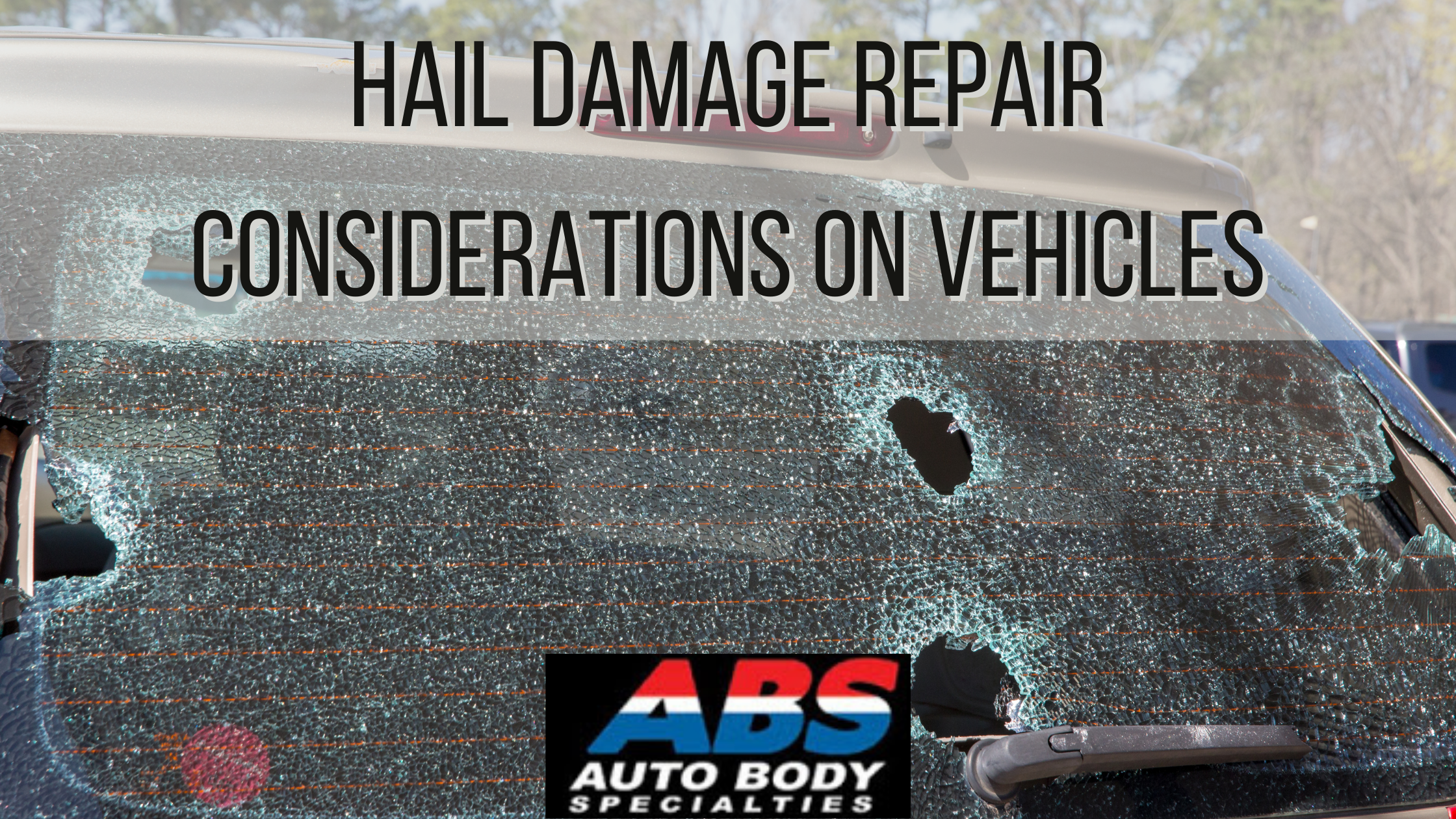
Summer in the northeast comes with two guaranteed things, hot weather and thunderstorms. With these storms comes severe weather such as torrential downpours, tornadoes, lightning, and hail. Hail and tornadoes tend to be the worst offenders for damaging vehicles. Hail is usually more frequent than tornadoes and tends to cause damage more commonly. The exterior of your vehicle including your hood and windshield can get easily get cracked and dented from hail.
The storms that produce hail are often unpredictable and hard to avoid of you are out for a summer joyride. You may not have the chance to get your vehicle somewhere safe before the balls of ice begin to fall. If your vehicle does fall victim to hail damage, here are some things to know about repairing it.
Hail Damage Repair Considerations on Vehicles
You might not be able to repair hail damage with paintless dent repair.
If the hail dent is small and light enough, it might be possible for yourself or an auto body technician to reapir them with metal tools. Unfortunately, if the dent from the hail is larger and heavy, it may put microscopic cracks in the car’s paint. This means your car cannot be repaired with paintless dent repair. If the paint is cracked at all, rust and more crackling will take place. The car will need to be sanded and repainted to prevent this further damage.
Your insurance may underwrite your hail damage estimate.
Insurance companies are aware that people claim hail damage to receive a check but then keep the cash when it is received. Because of this, the estimates can be significantly lower than the actual cost of repairing the vehicle. They usually do this on the hope that the consumer just cashes the check which increases their profit. When getting your hail damage estimate, make absolute sure the money they give you is enough to do the job.
Will my car be totaled from the damage from hail?
If your car is damaged enough, your insurance company may declare your car totaled. This usually happens when the cost of the repair is higher than the amount the insurance is willing to pay. If they decide it is not worth fixing, they will offer a settlement of what they feel the car is worth. To make sure you are getting fair value, it might be best for a professional body shop to check to see if the estimate is accurate.
 US Dollars
US Dollars
 CANADIAN
CANADIAN
